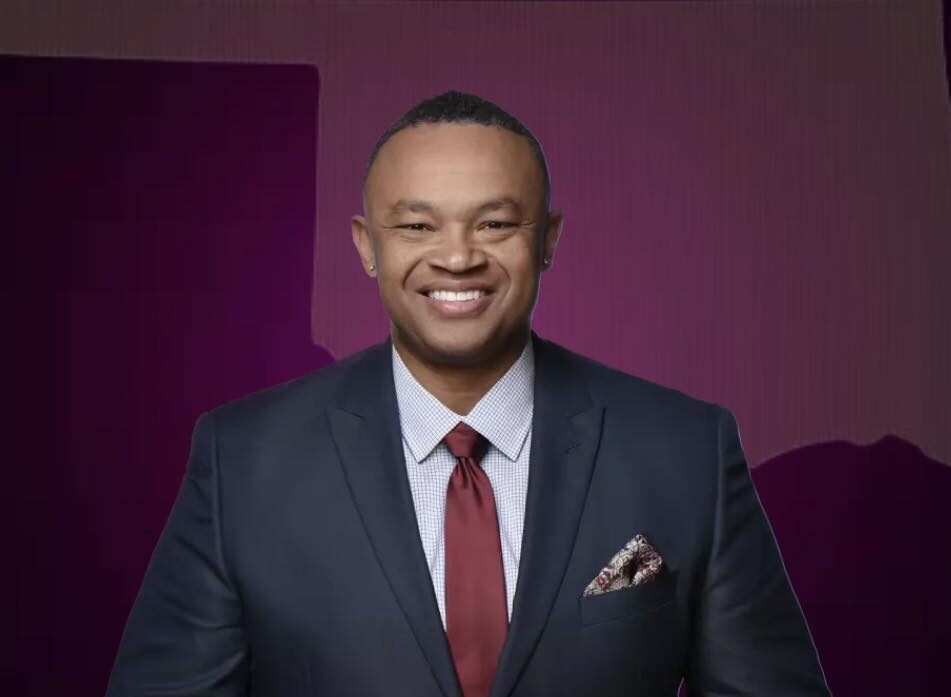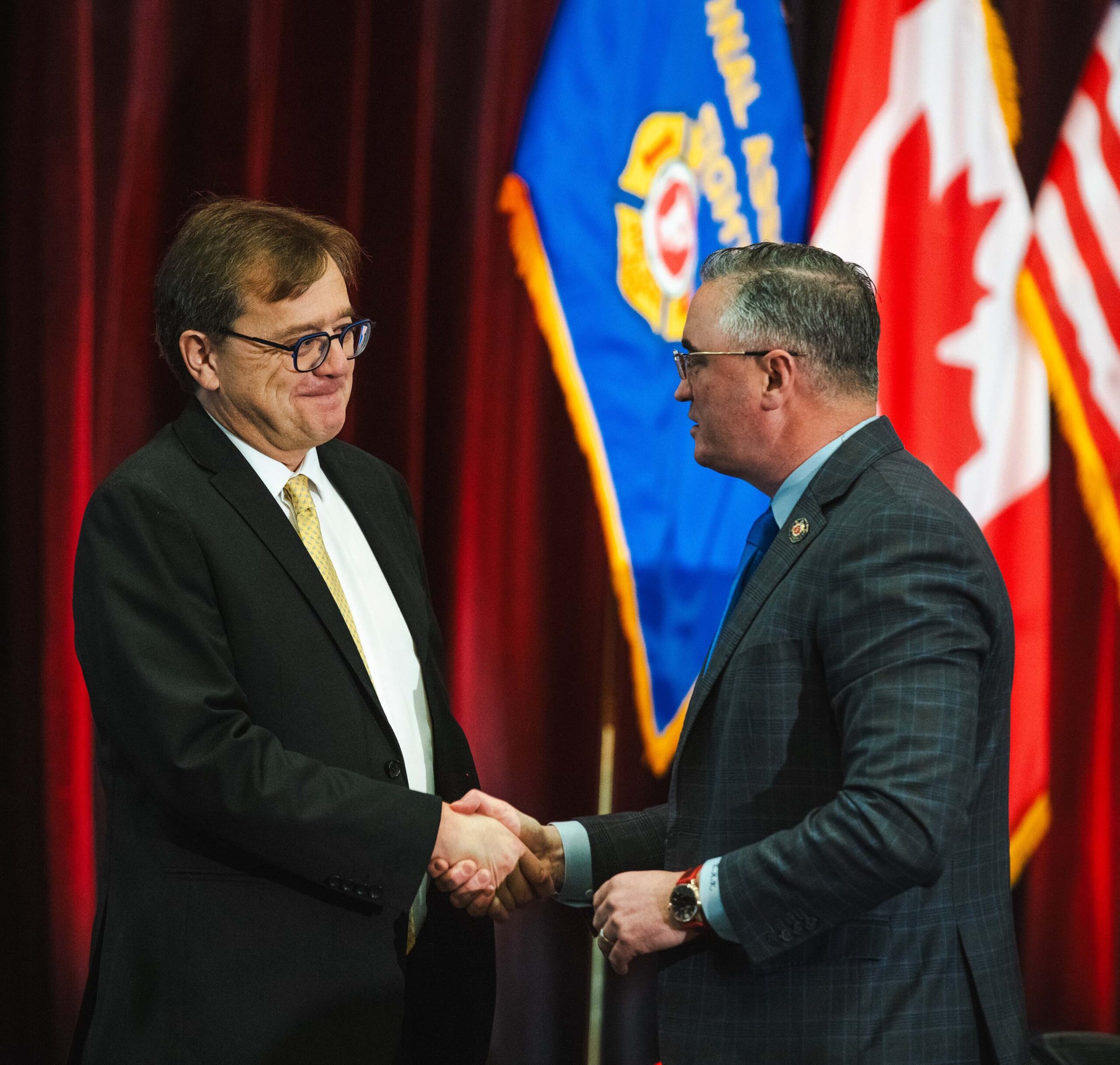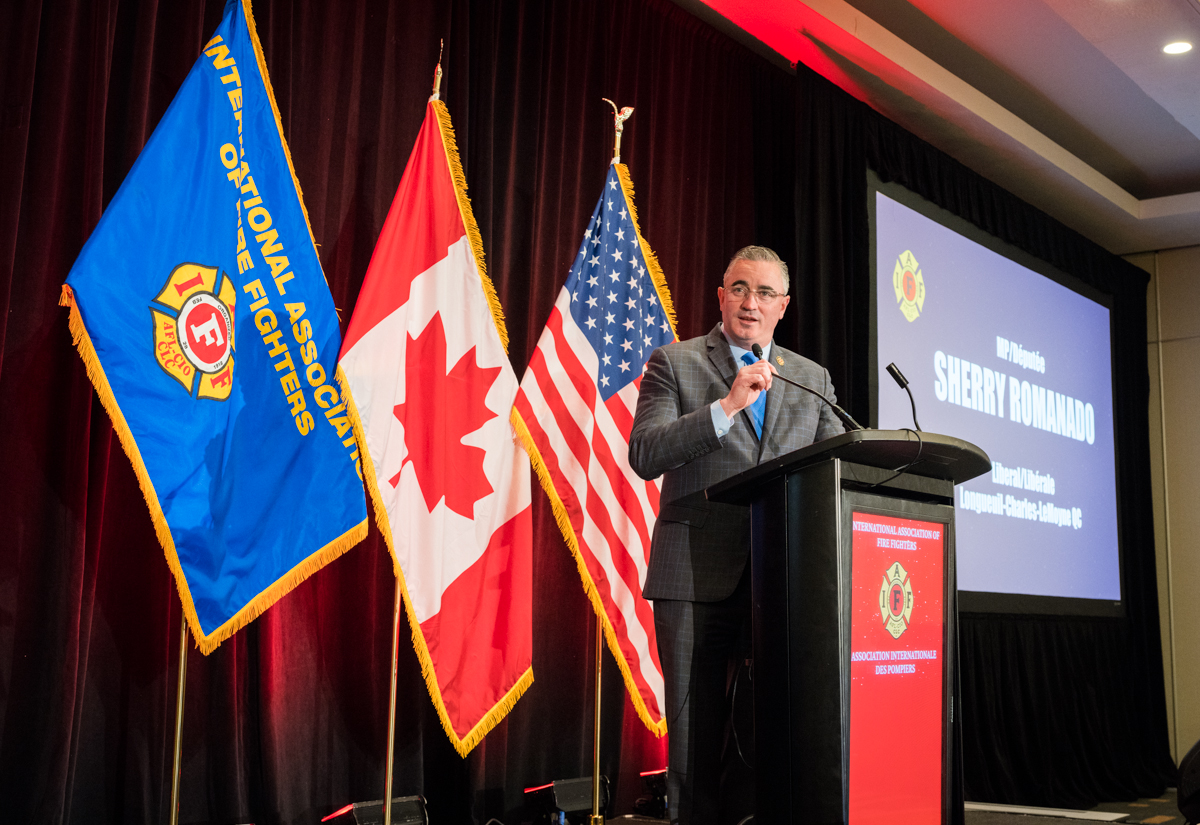When 7th District Vice President Ricky Walsh was appointed chair of the Elected Human Relations Committee (EHRC) last year, he recognized integrating training into every EHRC meeting would be key to the committee’s – and the union’s – growth.
And he knew where he wanted to start: Conflict resolution.
“The Technical Assistance assignments the committee works on all have a component of conflict,” he said, referring to the EHRC’s work assisting locals on matters pertaining to discrimination. “I wanted EHRC members to be able to recognize [conflict] and have the tools to work within that arena.”
Walsh, himself a certified conflict resolution mediator, asked clinical psychologist Donna Hallock to lead the four-day, 40-hour training. It was held on the campus of the Carpenters International Training Center in Las Vegas.
“Each generation brings its own individual values and behaviors, and these can be a source of conflict in the workplace,” said Will Newton, IAFF director of education, training, and human relations. “This training will allow our EHRC members to identify the root causes of conflict and drill down to the core of the issue.”
Identifying a problem doesn’t mean the mediator jumps in to solve it, though.
“Our Fire/EMS culture focuses on mitigation and problem solving, not necessarily facilitation or a structured conflict resolution. We do have a duty to serve and a component of empathy in what we do, [but we] are often compelled to solve the crisis,” said EHRC member Anita Paratley, of San Francisco, CA Local 798. “Mediation is a party-centered process where all voluntary participants are guided by the mediator toward negotiating a constructive solution. No advice giving, just facilitate and improve dialogue.”
Conflict is normal, but not resolving it can lead to deteriorating relationships and working conditions. The course focused on building skills to help disputing parties find understanding and mutually agreeable solutions.
“This will take the support provided by the IAFF to another level by broadening the conversations to promote thoughtful solutions,” said EHRC member Barbara Sellers, president of Shreveport, LA Local 514. “It is exciting to have additional resources to aid our affiliates in fostering an environment that promotes healing for all parties, elevating the opportunity for success.”
EHRC members see those resources helping them do a deeper dive into the issues facing locals.
“What is on the surface or initially presented may be far from what is really important to the participants and how it relates to our presentation,” said committee member David Bautista, of Orange County, CA Local 3631. “It is our role to help guide the participants to find common ground and solve the problem between the competing sides/interests themselves and not for us to dictate a solution.”
Walsh credited General President Edward Kelly for his support of the program, and the EHRC members for their commitment to continued education.
“Receiving training to address trending issues will be ongoing,” he said, “and we, the members of the IAFF, will be better for their efforts.”
Sellers agreed. “This type of professional training showcases the commitment of our IAFF leadership, ensuring that the EHRC has all of the tools necessary to be our very best.”



